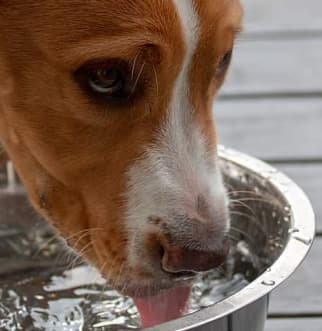
-
Find the right food for your pet
Take this quiz to see which food may be the best for your furry friend.
Find the right food for your pet
Take this quiz to see which food may be the best for your furry friend.
Featured products
 Adult Perfect Weight & Joint Support Chicken Recipe Dry Dog Food
Adult Perfect Weight & Joint Support Chicken Recipe Dry Dog FoodThis weight management and mobility support dog food was created with Hill’s unique understanding of the biology of overweight dogs.
Shop Now Adult 7+ No Corn, Wheat, Soy Chicken & Brown Rice Dog Food
Adult 7+ No Corn, Wheat, Soy Chicken & Brown Rice Dog FoodSupports energy level and beautiful coat in mature dogs
Shop Now Adult 7+ Perfect Digestion Chicken, Whole Oats & Brown Rice Recipe Dog Food
Adult 7+ Perfect Digestion Chicken, Whole Oats & Brown Rice Recipe Dog FoodScience Diet's breakthrough nutrition supports ultimate digestive well-being & healthy microbiome for dogs age 7+
Shop NowFeatured products
 Adult Savory Chicken Entrée Cat Food
Adult Savory Chicken Entrée Cat FoodPrecisely balanced nutrition with the delicious taste of savory minced chicken to help fuel the energy needs of cats during the prime of their life
Shop Now Perfect Weight Salmon & Vegetable Canned Cat Food
Perfect Weight Salmon & Vegetable Canned Cat FoodOver 70% of cats lost weight within 10 weeks when fed this nutrition
Shop Now Adult Perfect Digestion Chicken, Barley & Whole Oats Recipe Cat Food
Adult Perfect Digestion Chicken, Barley & Whole Oats Recipe Cat FoodScience Diet's breakthrough nutrition supports ultimate digestive well-being & healthy microbiome
Shop Now -
Dog
- Dog Tips & Articles
-
Health Category
- Weight
- Food & Environmental Sensitivities
- Urinary
- Digestive
- Joint
- Kidney
-
Life Stage
- Puppy Nutrition
- Adult Nutrition
- Senior Nutrition
Cat
- Cat Tips & Articles
-
Health Category
- Weight
- Skin & Food Sensitivities
- Urinary
- Digestive
- Kidney
-
Life Stage
- Kitten Nutrition
- Adult Nutrition
Featured articles
 The Incredible Science Behind Your Pet's Microbiome
The Incredible Science Behind Your Pet's MicrobiomeLearn what a pet's microbiome is, how it contributes to your pet's gut & overall health, and why nutrition is important in maintaining healthy microbiomes.
Read More Water
WaterDiscover why water is the most important nutrient for your dog or cat to live a healthy life. Find out how much water your pet should consume each day.
Read More Pet Food Storage Tips
Pet Food Storage TipsDiscover how and where to store your dry, as well as canned, dog and cat food. Learn how to find the "best before" dates on all Hill's pet food packaging.
Read More -
Find the right food for your pet
Find the right food for your pet


If your dog has been suffering from vomiting, diarrhea or a combination of both, your poor pooch just might have a case of gastroenteritis. Gastroenteritis in dogs is a common condition that typically involves diarrhea and may be accompanied by vomiting. It can also have a bloody component referred to as hemorrhagic gastroenteritis (HGE) or Acute hemorrhagic diarrhea syndrome (AHDS). Though common, gastroenteritis can be frustrating, scary and — depending on its cause and its effects on the individual dog — challenging to manage.
Types of Gastroenteritis in Dogs
Gastroenteritis has many faces. It can present as diarrhea alone (anywhere from mildly soft stool to watery feces) or diarrhea with vomiting. Less often, it can manifest as vomiting alone, though if the condition is confined to the stomach itself, veterinarians may refer to it as gastritis.
Gastroenteritis is further separated into two types — acute and chronic. Acute gastroenteritis comes on suddenly. Chronic gastroenteritis occurs over the course of weeks, months or even years. Acute gastroenteritis usually goes away by itself; in other cases, it will progressively worsen until veterinary treatment is provided.
Causes of Gastroenteritis in Dogs
Gastroenteritis in dogs can have many potential causes. Anything that alters a dog's microbiome significantly can lead to the condition. Here's a list of possible causes:
- Ingestion of spoiled or raw foods, or of non-food items
- Viruses (parvovirus, distemper, etc.)
- Intestinal parasites
- Changes in intestinal flora
- A food allergy or sensitivity
- Gastrointestinal (GI) ulcers
- GI cancers
- Foreign bodies
- Intestinal obstruction
- Genetic disease or predisposition
Unfortunately, it's usually difficult to pinpoint the exact cause of the condition. However, this doesn't mean that your dog can't be cured. In fact, most veterinary treatment is successful.


Tasty Tips
Healthy pets are happy pets, and no one is a better resource than your pet’s veterinarian.
Signs of Gastroenteritis in Dogs
Gastroenteritis in dogs typically starts with soft stool that becomes progressively wetter. Later on, you may notice mucus in the stool, your dog straining to produce a bowel movement and/or defecation in the house. Here are other common signs:
- Explosive and/or frequent bowel movements
- Tarry feces
- Large volumes of watery stool
- Blood in feces
- Lethargy
- Restlessness
- Abdominal pain
- Nausea (drooling, swallowing frequently)
- Vomiting
Dogs may display one or many of these signs, depending on the disease's severity and progression.
When to Take Your Dog to the Vet
Many dogs with gastroenteritis will appear surprisingly normal. They may show no signs other than a change in the quality, quantity, frequency or location of their stool. Dogs with HGE will have more obvious signs as mentioned above.
Since it's difficult to know whether a dog's condition will progress dangerously, veterinary care should be considered in all cases of diarrhea, especially for puppies, geriatric dogs or small breed dogs at higher risk of dehydration. Veterinary care is absolutely necessary if your dog shows signs of vomiting, nausea, blood, pain or lethargy.

Though common, gastroenteritis can be frustrating, scary and — depending on its cause and its effects on the individual dog — challenging to manage.
How Gastroenteritis is Managed in Dogs
Calling your vet should always be your first consideration if you suspect an issue with your dog's digestive health. They can let you know the best recommendations for your dog and if your pet needs to be examined right away. In addition to medications or treatments for gastroenteritis, your vet may recommend supportive care measures such as:
- Feeding therapeutic food that is highly digestible and easy on the GI tract
- Add an electrolyte supplement to their drinking water, for enhanced hydration
Limiting strenuous activity such as exercise for a few days
The Role of Nutrition in Gastroenteritis
The role nutrition plays in gastroenteritis can't be overstated, especially given that inappropriate dietary choices are at the heart of many cases. You should feed your dog regular meals consisting of food known not to upset their stomach. Try not to change their food too quickly or add new ingredients suddenly or in large quantities.
Vets will typically recommend food low in fat and high in digestible fiber to treat (and prevent) most cases of gastroenteritis. If your dog has a food sensitivity or allergy, their vet may prescribe a hydrolyzed-protein or novel-protein diet.
Gastroenteritis is a pain for everyone — not least your pup. Thankfully, veterinary care can be successful in treating the condition.


Dr. Patty Khuly is an award-winning veterinarian known for her independent thinking, her spirited pet advocacy, her passion for the veterinary profession, and her famously irreverent pet health writing.
Dr. K is an honors graduate of both Wellesley College and the University of Pennsylvania School of Veterinary Medicine. She received her MBA at The Wharton School of Business as part of the prestigious VMD/MBA dual-degree program. She now owns Sunset Animal Clinic, a veterinary practice in Miami, Florida.
Related Articles


See what Vets have to say
Read reviews from the experts and see why Hill's is the #1 Veterinarian Recommended brand.
See what Vets have to say
Read reviews from the experts and see why Hill's is the #1 Veterinarian Recommended brand.



